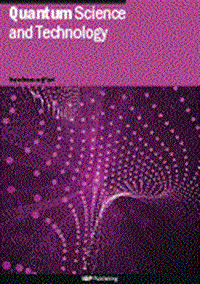Quantum key distribution with imperfectly isolated devices
IF 5
2区 物理与天体物理
Q1 PHYSICS, MULTIDISCIPLINARY
引用次数: 0
Abstract
Most security proofs of quantum key distribution (QKD) assume that there is no unwanted information leakage about the state preparation process. However, this assumption is impossible to guarantee in practice, as QKD systems can leak information to the channel due to device imperfections or the active action of an eavesdropper. Here, we solve this pressing issue by introducing a security proof in the presence of information leakage from all state preparation settings for arguably the most popular QKD scheme, namely the decoy-state BB84 protocol. The proof requires minimal experimental characterization, as only a single parameter related to the isolation of the source needs to be determined, thus providing a clear path for bridging the gap between theory and practice. Moreover, if information about the state of the side channels is available, this can be readily incorporated into the analysis to further improve the resulting performance.不完全隔离设备的量子密钥分发
大多数量子密钥分发(QKD)的安全性证明都假设状态准备过程中没有不必要的信息泄漏。然而,这种假设在实践中是无法保证的,因为QKD系统可能会由于设备缺陷或窃听者的主动行为而将信息泄露到信道中。在这里,我们通过引入一个安全证明来解决这个紧迫的问题,该证明存在最流行的QKD方案(即诱饵状态BB84协议)的所有状态准备设置的信息泄露。证明只需要最少的实验表征,因为只需要确定与源的隔离有关的单个参数,从而为弥合理论与实践之间的差距提供了明确的途径。此外,如果有关侧信道状态的信息是可用的,则可以很容易地将其纳入分析,以进一步提高最终性能。
本文章由计算机程序翻译,如有差异,请以英文原文为准。
求助全文
约1分钟内获得全文
求助全文
来源期刊

Quantum Science and Technology
Materials Science-Materials Science (miscellaneous)
CiteScore
11.20
自引率
3.00%
发文量
133
期刊介绍:
Driven by advances in technology and experimental capability, the last decade has seen the emergence of quantum technology: a new praxis for controlling the quantum world. It is now possible to engineer complex, multi-component systems that merge the once distinct fields of quantum optics and condensed matter physics.
Quantum Science and Technology is a new multidisciplinary, electronic-only journal, devoted to publishing research of the highest quality and impact covering theoretical and experimental advances in the fundamental science and application of all quantum-enabled technologies.
 求助内容:
求助内容: 应助结果提醒方式:
应助结果提醒方式:


